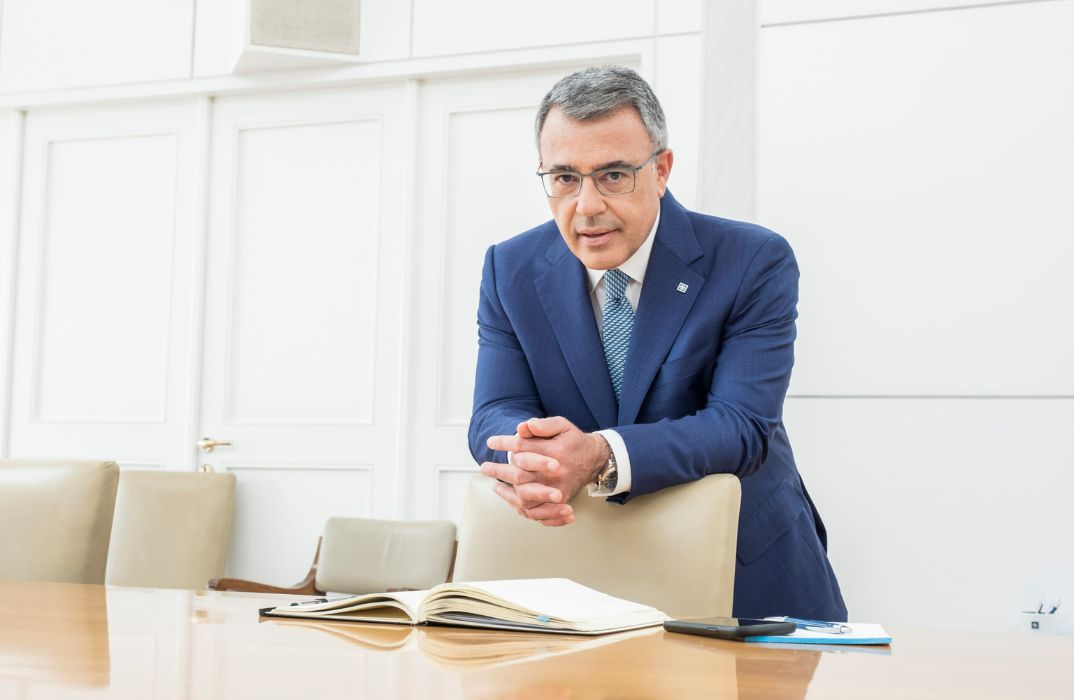
Vassilis Psaltis, the CEO of Alpha Bank, and Andrea Orcel, the CEO of UniCredit, left the door open for further growth and acquisitions in Romania.
After creating the No. 3 lender in Romania, the two firms may even team up on another takeover in that country once the integration of their two units is completed, he said in a joint interview with Alpha Bank CEO Vassilios Psaltis. “We are both committed to Romania, we both like Romania, we both see a lot of value there,” Orcel said in the interview on Thursday afternoon. “If and when there were to be an opportunity, we would also consider acquisitions in cooperation.”
Under the accord announced in October, UniCredit agreed to buy the Greek government’s 9% holding in Alpha Bank along with a majority stake in Alpha Bank’s Romanian unit, which it plans to merge with its own business in the country. The two sides also entered into a distribution partnership and a joint venture in pension-saving products. Alpha Bank received €300 million in cash for the Romanian business and retained 9.9% of the merged entity.
“I’m very, very happy with what we have done,” Orcel said, calling the purchase of a minority stake in Alpha a “pilot” for new markets where it isn’t competing directly with the other bank. “There may be other markets where we’re interested in developing directly in central Eastern Europe. If I can replicate it with partners that make sense for UniCredit, I will.”
In steering committee meetings, they outlined the next steps in implementing the accord. Another meeting is planned in Athens for the summer. “While we are obviously the junior partner in this,” Psaltis said, UniCredit “is treating us as equal,” encouraging ideas and contributions. “That’s energizing for our teams,” he said. Both managers portrayed their accord as an alternative way to promote bank integration in Europe.
Orcel reiterated that he has no plan to increase UniCredit’s stake in Alpha, and Psaltis argued that “as it stands right now, clearly this structure is very coherent.” “What we’re trying to achieve here is at the very heart of the European experiment, and if we are to really promote European integration, this is another way to achieve that,” he said.
The accord will generate an additional net profit for UniCredit of at least €100 million starting from 2026, most of that “from the Romanian leg,” Orcel said. The impact of the combination will be seen as soon as next year, he added.
The two CEOs said they’re confident that the cooperation between the two banks can go beyond initial expectations and involve payments, trade finance, and capital markets activities. “For example, in advisory or in the capital market, we will be increasingly going together with a common target list where we can bring more breadth in terms of our ability to risk capital,” Orcel said. The transaction allows UniCredit to sell its products to Alpha Bank’s clients and strengthen its presence in Eastern Europe. For Alpha, which has almost a 25% share of corporates doing business in the country, having a strong partner “opens a window to the world for these companies,” Psaltis said.






